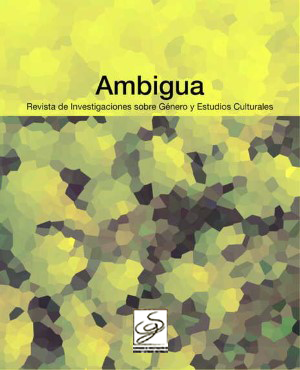Dulcinea del Toboso à l’origine de la vie
Réécriture du mythe cervantin dans une pièce de théâtre sublime, satirique et féministe
Keywords:
Dulcinea; reescritura ; obra de teatro; mito; Madre Tierra ; feminismo; Don Quijote.Abstract
The aim of this paper is to study, from a comparative perspective, the revision of the character of Dulcinea del Toboso in the play La complainte de Dulcinée, written by Dulcinée Langfelder (an artist living in Montreal). The aim is to identify the elements of such a revision. After having introduced the methodological frame, the analysis will show that the play writer, who follows the Cervantes’ novel, is able, not only to subvert some of the fundamental characteristics of Don Quixote and her muse, but moreover, she is able to surpass them, especially those referring to the creation of the new Dulcinea. Langfelder decides to give the floor to Dulcinea, who takes a way, which corresponds to the quest of her own identity. This search leads her to the encounter of several feminine symbols and figures, as well as a large amount of goddesses, which belong to old religions and civilizations. For the first time in a dramatization Dulcinea is given such a high status; she is represented as an image of the Mother Earth myth. This identification means a turning point in the relationship between Dulcinea and Don Quixote and, by extension, between men and women. Besides, this play can be considered as a feminist one, due to the defense of women’s rights and the parity between men and women, which becomes the motto of the new Dulcinea. The last part of this paper is about some elements that make up this play and which help to define the understanding of theatrical art of Langfedler, an all-around artist: an inclusive sense of feminism, satire and sense of humor
Downloads
Downloads
Published
How to Cite
Issue
Section
License
The authors agree with the following:
1. Authors retain copyright and grant the journal right of first publication with the work simultaneously licensed under a license Attribution-NonCommercial-ShareAlike 4.0 International (CC BY-NC-SA 4.0) that allows others to share the work with an acknowledgement of the work's authorship and initial publication in this journal.
2. Authors are able to enter into separate, additional contractual arrangements for the non-exclusive distribution of the journal's published version of the work (e.g., post it to an institutional repository or publish it in a book), with an acknowledgement of its initial publication in this journal.
3. Authors are permitted and encouraged to post their work online (e.g., in institutional repositories or on their website) prior to and during the submission process, as it can lead to productive exchanges, as well as earlier and greater citation of published work (See The Effect of Open Access).









